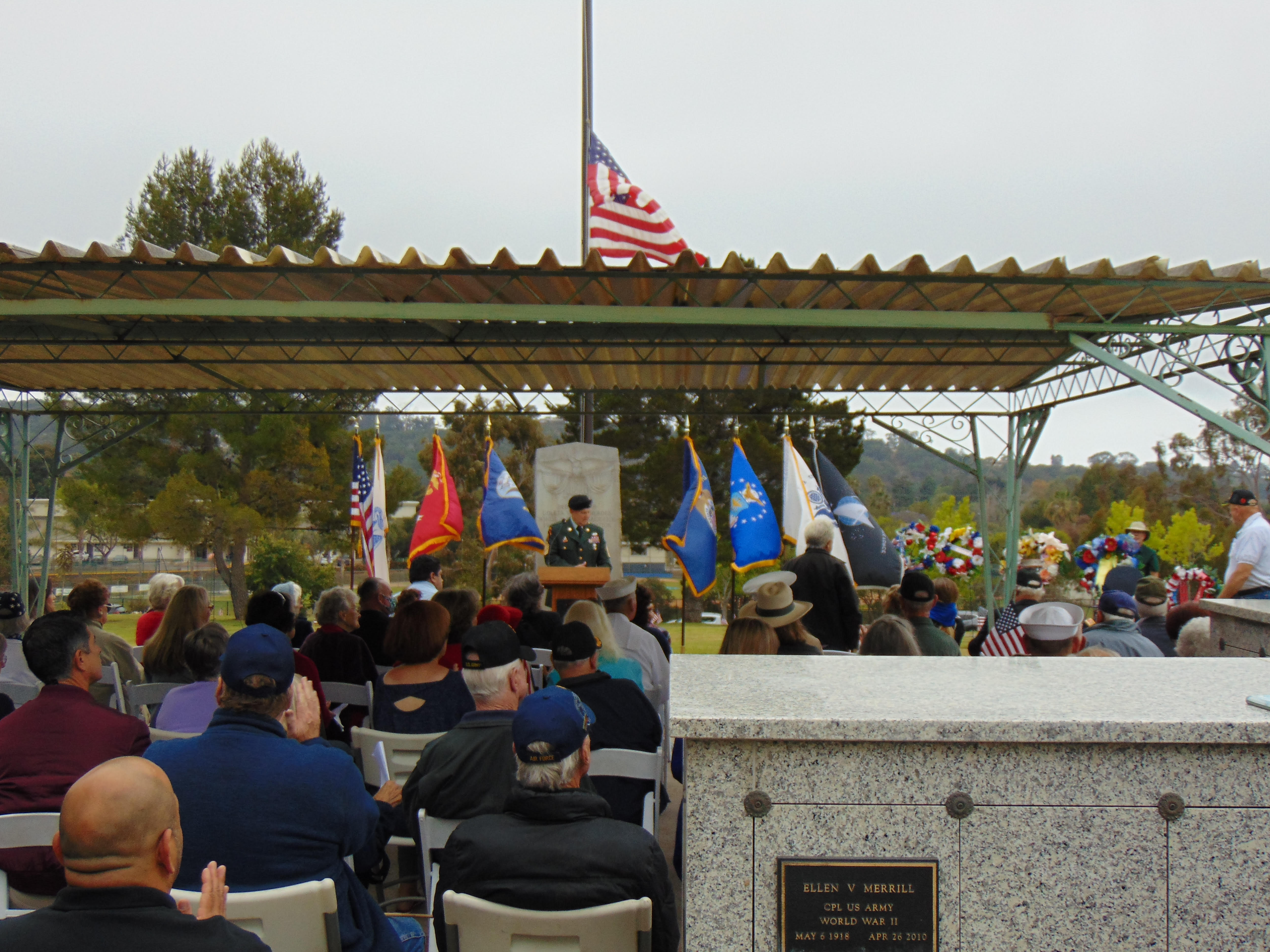Keeping the Memory of Fallen Comrades Alive
Memorial Day 2021

Memorial Day was unlike any other in recent memory this year. How could it not be, for when residents of Goleta gathered on an uncharacteristically overcast day in Southern California to memorialize those that sacrificed most, they did so wearing masks, and standing six feet apart, although with a renewed sense of hope. For many area veterans and their friends and family gathered at Goleta Cemetery, it was the first time in more than a year they had gathered in groups to reflect on the national and personal costs of war. All of this during a time of unprecedented loss of life.
To date, more American lives have been lost due to the coronavirus pandemic than all those that perished in all wars within living memory combined. Commemorative groups such as AMVETS, VFW (Veterans of Foreign Wars), VVA (Vietnam Veterans of America), and Daughters of the American Revolution provide important analog social networks for people interested in keeping memory of war and those that gave their lives in it alive. My work as an ethnographer, studying how memory of war can allow for group formation, has allowed me to witness firsthand the power such commemorative groups have in keeping memory of their fallen comrades alive, not only within their own hearts and minds, but also the larger community they network with.
More than 100 residents turned to celebrate the day and honor the dead. Residents were treated to the stirring words of Drew Wakefield, who pleaded with the audience to not forget those who died, and importantly to actively remember them for future generations. In one of the most memorable moments of Wakefield’s address, he admonished the audience to remember those who sacrificed themselves through naming them: “If we forget,” he said. “If we do not come out on these beautiful Monday mornings with the May grey, where will our youngsters be in a few more years? Who will they remember, who will they talk about?”
Names were a preeminent theme in this year’s ceremony. When Goleta’s Mayor pro tempore, James Kyriaco, took the podium, he, too, reflected on the names of the residents who gave their lives in the Vietnam War, such as Anthony Dal Pozzo Jr. and Michael Dominguez. He also reminded residents, that the community of Goleta understood the horrors of war not only through losing many of its treasured youth but also through a surprise attack on Ellwood Beach by a Japanese submarine during World War II.
As in past years a ritual called “Roll Call” was practiced at the ceremony. Command Sergeant Major Johnathan Church (Ret.), a stoic retired Army commander, stood with Staff Sergeant Mark Thies, as Thies called out roll. Roll Call is a tradition spanning back to the British military that emphasizes the emptiness in an incomplete unit when a soldier does not return from the battlefield, an emptiness that is rendered through silence after calling a name. The local tradition includes calling the names of living local veterans alongside some who perished in war. This year Tom Eliot, a local resident and Vietnam combat veteran USMC (U.S. Marine Corps), was called alongside the names of Joshua Towsend, Jerry Georges, and Aaron Allen, the latter three having made the ultimate sacrifice in Afghanistan, Vietnam, and Iraq, respectively.
Notably, the names of the fallen this year did not include those from WWII or the Korean War, a huge shift in commemorating war memory, but one that has been ongoing now for decades. While a few WWII and Korean War veteran caps peppered the audience, there was an overwhelming presence of Vietnam Veteran baseball caps, patches, license plate frames, and bumper stickers at this year’s event.
For combat veterans like Tom Eliot and the friends and families who have lost loved ones in service of the nation, Memorial Day is much more than a government-sanctioned three-day weekend; it is a time to reflect on the sacrifices of servicemembers unreturned from the theater of war, for it is these sacrifices that breath life and meaning into the abstract American values of liberty, democracy, and security.
My work has brought me close to Vietnam veterans in the community, who actively memorialize the war, and through them, three names have become paramount in my annual Memorial Day commemorations, Gary A. Breck, Timothy Crandall, and Tommy Mezzles, three young men that never returned home from the Vietnam War and whose final resting place is Goleta Cemetery.
Each year around this time, if I am teaching a course, I like to take a few minutes at the end of a class and read these names to the UCSB undergraduates I instruct. I tell them that not even one of those three young men lived to see 25, that they were all from the same place, Goleta, and that in another time and another place, it could have been them in the places of Breck, Crandall, Mezzles, and the thousands of other Americans, who generation after generation heed their nation’s call and continue to make the ultimate sacrifice.
Each year I am always a little surprised, by the students that stay after class and ask me about those three men, and I always tell them the same thing. I don’t know much about them because so much of their story had yet been written, but what I do know is that they did what they did so that we could write our stories.
Live big and live beautifully, and remember them through your joy, not pain, for they gave their all yesterday so that we might have tomorrow.



